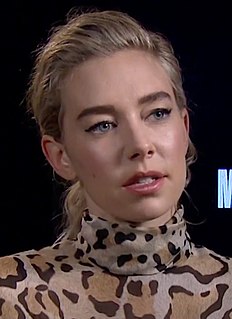A Quote by Karen Abbott
It was a great challenge to reconstruct Gypsy Rose Lee life, and my interviews with her sister [June Havoc] proved invaluable. It's not often that writers have access to living primary source material; this was the only person who experienced life on the vaudeville circuit with Gypsy during the 1920s, and who saw her perform at Minsky's Burlesque in the 1930s. She knew things that no one else could ever possibly know.
Related Quotes
Her sister [June Havoc] said the musical portrayed who Gypsy [Rose Lee] wanted to be before the burlesque thing happened she wanted to be this beautiful, romantic person with dreams. So Gypsy told the story of her life as she wished she'd lived it: embellishing, softening the edges, eliminating certain things altogether.
I spent three years researching American Rose, research that included connecting with Gypsy's sister, the late actress June Havoc (I was the last person to interview her) and Gypsy's son, and also spending countless hours immersed in Gypsy's expansive archives at the New York Public Library. I became obsessed with figuring out the person behind the persona.
The cousin said that Gypsy [Rose Lee] took a full fifteen minutes to peel off a single glove, and that she was so damn good at it he gladly would've given her fifteen more. So this story got me thinking, who was Gypsy Rose Lee? Who could possibly take the simple act of peeling off a glove and make it so riveting that one might be compelled to watch this for a full half-hour? So I began researching, and I came across a series of articles from the year 1940 about Gypsy in Life magazine.
Gypsy [Rose Lee], who was called Louise as a kid, gave her first performances here with her sister [June Hovac], playing for the local Masonic lodge halls. It was a tight-knit community, and the support and success the act enjoyed here enabled them to hit the road and make it in big-time vaudeville.
She once said, 'I'm really a little prudish, which people may think incongruous'. I take a prudish point of view on certain films, books, and trends. Then, I pull myself up short and ask myself how Gypsy Rose Lee could possibly be this way.I thought that quote was so telling, a key insight into the way she so carefully separated who she was from her meticulous creation.
I knew she was a party girl. The book I liked most on her was called [princess] Margaret: A Life of Contrasts and getting to know her, it was how conflicted her position and her internal life - or self - was. She is so fiercely royal and so fiercely "sister of the queen" or "daughter of the king" because that is her identity and it's all she's ever known. And at the same time she is struggling to push the boundaries and to break away from it, to be different or to modernize the monarchy, to turn it on its head.




















